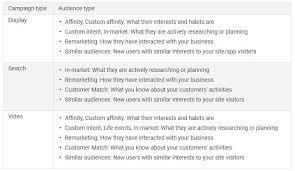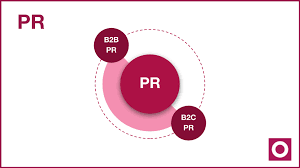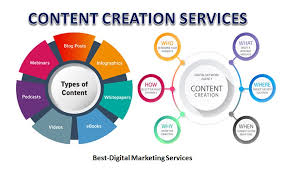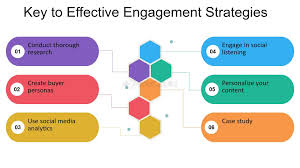Unlocking Success: The Essential Role of a Marketing PR Agency in Today’s Business Landscape
The Role of a Marketing PR Agency in Today’s Business Landscape
Marketing PR agencies play a crucial role in helping businesses navigate the complex world of communication and promotion. In today’s competitive business landscape, having a strong and strategic marketing PR partner can make all the difference in reaching and engaging with your target audience.
One of the key functions of a marketing PR agency is to develop and implement effective communication strategies that build brand awareness, enhance reputation, and drive engagement. By leveraging various channels such as media relations, social media, content creation, and events, marketing PR agencies help businesses connect with their audience in meaningful ways.
Marketing PR agencies also play a vital role in crisis management. In the event of a negative situation or public relations crisis, these agencies are equipped to handle communication effectively, mitigate damage to the brand’s reputation, and rebuild trust with stakeholders.
Furthermore, marketing PR agencies provide valuable insights and data-driven recommendations to help businesses make informed decisions about their communication efforts. By monitoring industry trends, competitor activities, and audience preferences, these agencies can tailor strategies that resonate with the target market.
Collaborating with a marketing PR agency can bring fresh perspectives and innovative ideas to your business. With their expertise in storytelling, creative campaigns, and relationship-building, these agencies can help businesses differentiate themselves in crowded markets and stand out from the competition.
In conclusion, the role of a marketing PR agency is multifaceted and essential for businesses looking to succeed in today’s dynamic business environment. By partnering with a reputable agency that understands your goals and values, you can unlock new opportunities for growth, engagement, and success.
Top 14 Frequently Asked Questions About PR and Marketing Agencies
- What are PR agencies?
- What is PR agency?
- What is a PR in marketing?
- What does a PR agency do?
- What are the roles of PR agency?
- What is a PR marketing agency?
- How much does PR marketing cost?
- How much does a PR agent cost?
- What are the big 5 PR firms?
- What is the difference between a marketing agency and a PR agency?
- What is PR and marketing agency?
- How much does a PR agency cost?
- Do PR agencies do marketing?
- What a PR agency should do?
What are PR agencies?
PR agencies, short for Public Relations agencies, are professional firms that specialise in managing communication between an organisation and its target audience. These agencies work to build and maintain a positive image and reputation for their clients by creating strategic communication plans, engaging with the media, influencers, and other stakeholders, and handling crisis situations effectively. PR agencies play a crucial role in shaping public perception, increasing brand visibility, and fostering strong relationships with key audiences to help businesses achieve their communication goals and objectives.
What is PR agency?
A PR agency, short for Public Relations agency, is a professional firm that specialises in managing the communication and reputation of businesses or individuals. PR agencies work to create and maintain a positive image for their clients through strategic communication tactics such as media relations, content creation, event planning, and crisis management. These agencies play a crucial role in helping clients connect with their target audience, build brand awareness, and navigate the complexities of public perception. By leveraging their expertise in storytelling and relationship-building, PR agencies help businesses enhance their reputation and achieve their communication goals effectively.
What is a PR in marketing?
Public Relations (PR) in marketing refers to the strategic communication efforts aimed at building and maintaining a positive image of a brand or company among its target audience. PR activities in marketing focus on creating and distributing compelling messages through various channels to enhance brand visibility, credibility, and reputation. These efforts often involve media relations, influencer partnerships, event management, crisis communication, and content creation to engage with stakeholders and shape public perception. Ultimately, PR in marketing plays a crucial role in establishing strong relationships with customers, investors, employees, and the wider community to drive brand awareness and loyalty.
What does a PR agency do?
A PR agency plays a pivotal role in managing and enhancing a company’s reputation through strategic communication. PR agencies are responsible for crafting compelling narratives, building relationships with the media, creating engaging content, and executing campaigns that help businesses connect with their target audience. From generating positive publicity to handling crisis communication, a PR agency utilises its expertise to shape public perception, increase brand visibility, and ultimately drive business growth. By leveraging their skills in storytelling, media relations, and strategic planning, PR agencies help businesses navigate the complex landscape of communication to achieve their goals effectively.
What are the roles of PR agency?
The roles of a PR agency encompass a wide range of functions that are essential for businesses seeking to enhance their communication and reputation. PR agencies are tasked with developing and implementing strategic communication plans, managing media relations, creating compelling content, organising events, and monitoring public perception. They play a crucial role in building brand awareness, shaping public opinion, managing crises effectively, and fostering positive relationships with key stakeholders. Ultimately, PR agencies act as trusted advisors to help businesses navigate the complex landscape of public relations and achieve their communication objectives successfully.
What is a PR marketing agency?
A PR marketing agency, also known as a Public Relations marketing agency, is a professional service provider that specialises in developing and implementing strategic communication plans to promote and enhance a brand’s reputation. These agencies utilise various channels such as media relations, social media, content creation, events, and more to effectively communicate with the target audience and key stakeholders. A PR marketing agency plays a crucial role in helping businesses navigate the complexities of modern communication and promotion, ultimately aiming to build brand awareness, drive engagement, and establish credibility in the market.
How much does PR marketing cost?
When considering the cost of PR marketing services, it is important to understand that pricing can vary depending on several factors such as the scope of work, the complexity of the campaign, the size of the target audience, and the specific goals and objectives of the business. PR marketing costs are typically tailored to each client’s needs and requirements, with some agencies offering package deals while others provide customised solutions. It is advisable for businesses to discuss their budget and expectations with a reputable PR marketing agency to receive a detailed quote that aligns with their goals and delivers value for their investment.
How much does a PR agent cost?
When considering the cost of hiring a PR agent, it’s important to understand that pricing can vary based on several factors, including the scope of services required, the reputation and experience of the agency, and the specific goals of your business. PR agent fees can range from hourly rates to monthly retainers or project-based fees. It’s advisable to discuss your budget and expectations with potential PR agents to determine a pricing structure that aligns with your needs and objectives. Investing in a reputable PR agency can yield significant returns in terms of brand visibility, reputation management, and audience engagement.
What are the big 5 PR firms?
When it comes to the top players in the public relations industry, the “Big 5” PR firms are often referenced. These firms, known for their global reach and prestigious client portfolios, include Edelman, Weber Shandwick, FleishmanHillard, BCW (Burson Cohn & Wolfe), and Ketchum. Each of these agencies has a strong reputation for delivering innovative PR strategies, creative campaigns, and effective communication solutions for a wide range of clients across various industries. Their expertise and influence in the PR world have solidified their positions as key players in shaping the landscape of modern public relations practices.
What is the difference between a marketing agency and a PR agency?
When considering the difference between a marketing agency and a PR agency, it’s important to understand their distinct roles and objectives. A marketing agency typically focuses on promoting products or services through various channels such as advertising, digital marketing, and branding to drive sales and revenue. On the other hand, a PR agency specialises in managing relationships with the public, media, and stakeholders to build brand reputation, create positive publicity, and handle communication during both good and challenging times. While marketing agencies aim to generate leads and conversions, PR agencies concentrate on shaping public perception and maintaining a favourable image for the brand. Both types of agencies play vital roles in a comprehensive communication strategy, each bringing unique expertise to help businesses achieve their specific goals effectively.
What is PR and marketing agency?
A PR and marketing agency is a professional service provider that specialises in creating and implementing strategic communication and promotional campaigns for businesses. PR, which stands for public relations, focuses on managing the reputation of a company through various channels such as media relations, influencer partnerships, and community engagement. Marketing, on the other hand, involves promoting products or services to drive sales and increase brand visibility. By combining PR and marketing efforts, agencies can help businesses enhance their brand image, reach their target audience effectively, and achieve their communication goals in a cohesive and integrated manner.
How much does a PR agency cost?
When considering the cost of hiring a PR agency, it’s essential to understand that pricing can vary based on several factors, including the scope of services required, the size and reputation of the agency, and the specific goals of your business. PR agencies typically offer a range of pricing models, such as retainer fees, project-based fees, or hourly rates. It’s important to have a clear discussion with potential agencies to outline your budget and expectations so that they can provide a tailored proposal that aligns with your needs. While costs may vary, investing in a reputable PR agency can yield significant returns in terms of brand visibility, reputation management, and overall business growth.
Do PR agencies do marketing?
Yes, PR agencies often incorporate marketing elements into their services to provide a comprehensive communication strategy for their clients. While public relations (PR) and marketing are distinct disciplines, they are closely related and often overlap in practice. PR agencies may engage in marketing activities such as creating promotional campaigns, developing content for social media platforms, organising events to enhance brand visibility, and collaborating with influencers to reach target audiences effectively. By integrating marketing tactics into their PR strategies, agencies can help businesses achieve a holistic approach to communication that drives brand awareness, engagement, and ultimately, business growth.
What a PR agency should do?
When considering what a PR agency should do, it is essential to understand the multifaceted role they play in shaping a brand’s communication strategy. A PR agency should work closely with clients to develop and implement effective communication plans that enhance brand visibility, manage reputation, and engage with target audiences. From crafting compelling press releases and securing media coverage to creating engaging social media content and managing crisis communication, a PR agency should be adept at navigating various channels to convey the right message at the right time. Ultimately, a PR agency’s goal is to build strong relationships with stakeholders, drive brand awareness, and help businesses achieve their communication objectives effectively.












